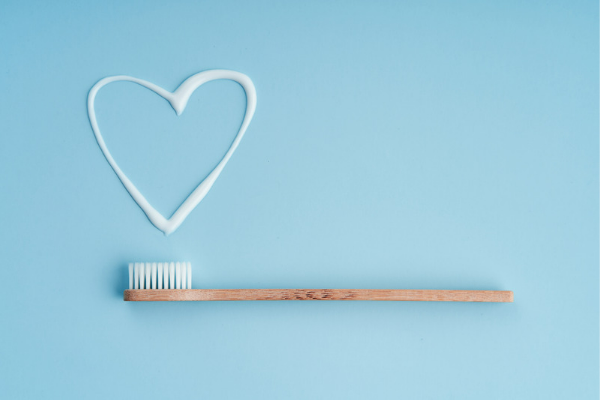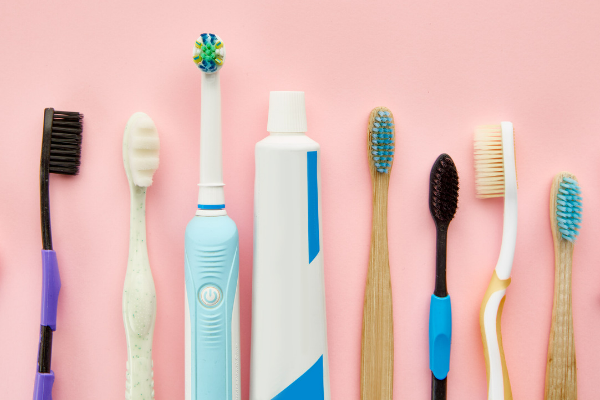Taking care of your oral health is essential, and selecting the right toothbrush is a crucial step towards maintaining a healthy smile. With numerous options available, it’s important to choose a toothbrush that suits your specific needs. In this comprehensive guide, we’ll explore the factors to consider when selecting the perfect toothbrush for you.
When to replace your toothbrush
Over time, the bristles on your toothbrush will become frayed and worn, reducing their effectiveness in removing plaque and debris. As a general rule, it is recommended to replace your toothbrush or toothbrush head every three to four months. However, you may need to replace it sooner if you notice the bristles becoming frayed or splayed. Additionally, if you have been ill or have had an oral infection, it is advisable to replace your toothbrush immediately to avoid reinfection. By regularly replacing your toothbrush, you ensure optimal oral hygiene and help maintain a healthy smile.
Who is the toothbrush for?
Choosing the right toothbrush also depends on the age of the user. For infants and toddlers, soft-bristled toothbrushes specially designed for babies should be used. These toothbrushes have small, rounded heads and gentle bristles to clean delicate gums and emerging teeth. As children grow, they can transition to a child-sized toothbrush with age-appropriate designs and characters that make brushing more enjoyable. Look for toothbrushes with smaller heads, soft bristles, and easy-to-grip handles. For teenagers and adults, a wide range of toothbrush options is available. Consider individual needs such as orthodontic appliances, sensitive teeth, or specific oral health conditions. Remember, regardless of age, it’s important to maintain good brushing habits and replace toothbrushes regularly to ensure optimal oral hygiene.
Bristle Types
Toothbrush bristles come in different types: soft, medium, and hard. For most people, a soft-bristled toothbrush is recommended, as it effectively cleans teeth without causing excessive wear on the enamel or irritating the gums. Medium and hard bristles may be suitable for specific dental conditions, but consult your dentist and hygienist before using them.
Manual or Electric
Both manual and electric toothbrushes can be effective, but each has its advantages. Manual toothbrushes offer affordability, portability, and simplicity. Electric toothbrushes, on the other hand, provide automated movements for superior plaque removal and can be particularly helpful for those with limited dexterity or orthodontic appliances. Independent research has shown that electric rotating, oscillating brushes remove more plaque.
Toothbrush Head Size and Shape
Consider the size and shape of the toothbrush head. Opt for a head size that comfortably fits your mouth, allowing easy access to all surfaces of your teeth. A smaller head may be beneficial for reaching difficult areas, such as the back molars.
Toothbrush Handle Design
Ensure the toothbrush handle is comfortable to hold and provides a firm grip. Look for a handle with a non-slip surface or ergonomic design that suits your hand size and brushing technique. Remember, a comfortable handle promotes proper brushing technique and makes the process more enjoyable.
Eco-friendly Toothbrush Materials
If you’re looking for more environmentally friendly options, there are several eco-friendly toothbrush alternatives available. Bamboo toothbrushes have gained popularity as they have handles made from sustainable and biodegradable bamboo, reducing plastic waste. Some brands even offer replaceable brush heads, reducing the need to discard the entire toothbrush. Another option is toothbrushes made from recycled plastic or bioplastics derived from renewable resources. These toothbrushes help minimize the use of new plastic materials and contribute to a circular economy. Additionally, there are toothbrushes with compostable handles made from materials like corn-starch or other plant-based materials. These eco-friendly toothbrush alternatives allow you to maintain good oral hygiene while reducing your environmental footprint.

Oral Health Foundation Approved
The Oral Health Foundation evaluates consumer oral health care products to ensure that the claims made by manufacturers are clinically proven and not exaggerated. Currently there are more than 150 ‘Approved’ products on sale in 60 countries around the world. So when you next visit your supermarket, beauty retailer or pharmacy, look out for the toothbrushes that carry the Oral Health Foundation ‘Approved’ logo. Approved Products | Oral Health Foundation (dentalhealth.org)
Personalised Recommendations
While this guide provides general tips, consulting your dentist is crucial for personalised recommendations. Your dentist understands your unique dental needs and can recommend the most suitable toothbrush based on factors like gum health, dental restorations, and any existing oral conditions.
Your dentist or hygienist may recommend a specific toothbrush based on your unique dental needs. For example, if you have sensitive teeth or are prone to gum recession, your dentist may suggest a toothbrush with extra soft bristles to minimize irritation. Those with orthodontic appliances like braces may benefit from a toothbrush with a specially designed head or bristle pattern to effectively clean around brackets and wires. If you have difficulty reaching certain areas of your mouth, your dentist or hygienist may recommend an electric toothbrush with oscillating or rotating bristles for improved plaque removal. Additionally, patients with specific dental conditions such as gum disease, enamel erosion, or dental restorations may be advised to use toothbrushes specifically designed for their needs, such as those with extra gentle bristles or specialized cleaning features. Consulting your friendly dental team allows for personalized recommendations tailored to your oral health requirements.
How much should I spend on a toothbrush?
Toothbrushes are available in a wide price range to accommodate different budgets and preferences. Manual toothbrushes are generally the most affordable option, with prices ranging from a few pounds to around £10, depending on the brand and features. Electric toothbrushes, on the other hand, tend to be pricier due to their advanced technology. Basic electric toothbrushes can range from £20 to £50, while more advanced models with additional features like pressure sensors, multiple cleaning modes, and Bluetooth connectivity can cost upwards of £100. Keep in mind that while electric toothbrushes may have a higher upfront cost, they often provide superior plaque removal and may be worth the investment for improved oral health. Ultimately, choose a toothbrush that fits your budget while meeting your oral care needs effectively.
Toothbrush Maintenance
Proper toothbrush maintenance is essential for ensuring optimal oral hygiene. After each use, thoroughly rinse your toothbrush with tap water to remove any remaining toothpaste or debris. Store the toothbrush in an upright position in a well-ventilated area to allow it to air dry. Avoid storing toothbrushes in closed containers or covers, as this can promote the growth of bacteria. Additionally, keep your toothbrush separate from others to prevent cross-contamination. Regularly check the bristles for signs of wear or fraying, and replace the toothbrush or toothbrush head every three to four months, or sooner if necessary. By maintaining your toothbrush properly, you can maximize its effectiveness and ensure a clean and healthy brushing experience.
Choosing the right toothbrush is a vital aspect of maintaining good oral hygiene. By considering factors such as bristle type, manual or electric, head size and shape, handle design, and Oral Health Foundation Approval, you can find a toothbrush that perfectly suits your needs. Remember to replace your toothbrush regularly and consult your dentist and hygienist for personalised recommendations. With the right toothbrush in hand, you’re one step closer to achieving a healthy and beautiful smile.
If you have any questions, please don’t hesitate to get in touch or ask the friendly team at Kennett Road Dental on your next visit!
